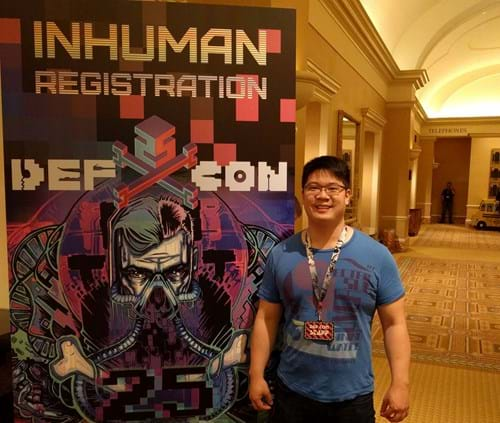
Hacking is Real: DEF CON 2017
How easy is it to hack an election? Who controls the data in the voter rolls? What level of error will a democracy be willing to tolerate in an election? Hackers and thinkers tried to shed light on these questions at DEF CON 2017.
This year, the WE continuing education budget provided me with the opportunity to attend DEF CON, one of the world’s largest hacking conventions annually held in Las Vegas. Typically 10,000 – 15,000 technology enthusiasts attend, which swelled to 20,000 in 2016. The conference features a variety of “villages” where hackers tinker with different technologies. In 2016, themes included cryptography, privacy and IoT. This year, the successful hack of widely used voting machines in the 2016 election drew the most crowds, as hackers demonstrated the vulnerabilities of our electoral process.

Since 1993, attendees including security professionals, journalists, lawyers, government employees, researchers, students and hackers have gathered at DEF CON to learn about software, computer architecture, phone phreaking and hardware modification—anything that can be “hacked.” While the term “hacker” typically conjures up images of hooded figures wreaking havoc, hackers can be anyone who uses their technical knowledge to break into computer systems –for good or for bad. They can steal your credit card information and make a fraudulent purchase, or they can help patch your bank’s website together to make it more secure.
The talks at DEF CON this year covered some frightening possibilities. A denial-of-service attack on 9-1-1 call centers. Using sound waves to hack credit card magnetic strip readers. Artificial intelligence used to proliferate “fake news.” The fragility of democracy. These are big ideas that reveal the vulnerabilities of what we cherish most – freedom and privacy. Oftentimes without context, scary headlines about ransomware and hackings sow further confusion. DEF CON can be a place where without proper understanding and context, fear of the very technology we depend on, which can be manipulated and turned against us, can proliferate.
However, on the flip side, the teen who unwittingly took down 9-1-1 systems through his tinkering revealed a vulnerability that could be patched to prevent future incidents. Discovering that magnetic strip readers can be manipulated by sound waves means manufacturers can create stronger, more secure hardware. By breaking into voting machines, we can build more secure ones. Once we confront our vulnerabilities – something hackers are primed to do – we can create our best defense against them.
Whether we like it or not, hacking behavior impacts our everyday activities. Rather than something to be feared, hacking may be something that should be encouraged – under safe parameters, of course. Communicators can play a role too, by helping to alleviate uncertainty through educating audiences on how to navigate the complex world of security.
The latest blogs from WE
Decoding Gen Alpha: A Primer on the Next Gen of Consumers
Why Gen Alpha Will Fuel Spending This Season
Why Reputation Is a Business Driver in Healthcare

